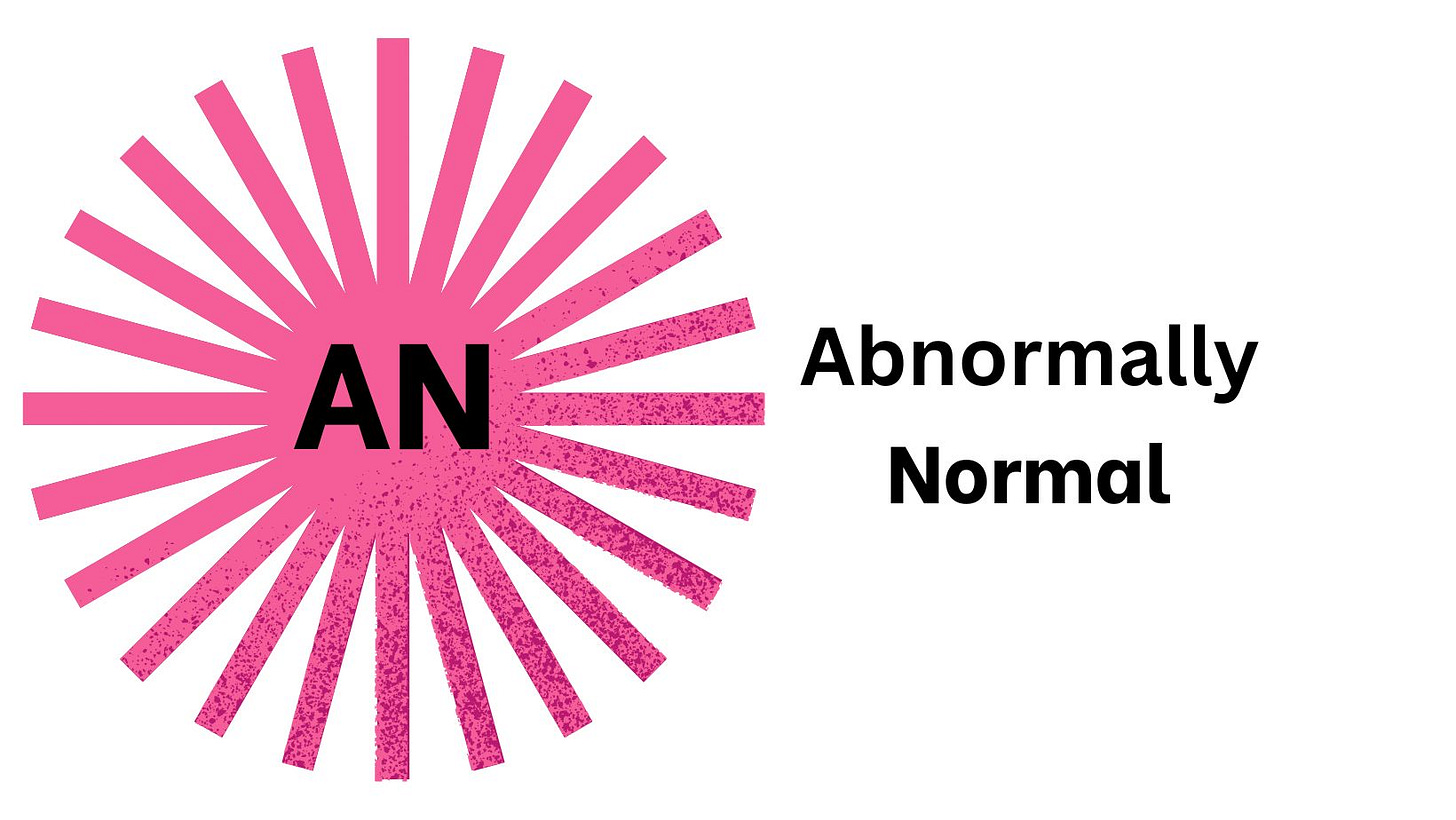How Being a Highly Sensitive Person (HSP) Is a Super Power - if You Learn How To Protect Your Energy
Did you know that 1 in 5 people are HSPs and only 30% of these are extroverted

Once I figured out I was a highly sensitive person (HSP), everything seemed to fall into place.
As a child, were you told you were too sensitive on a regular basis? Maybe you are still told this. Do you consider yourself a deep thinker? Have others ever accused you of taking things too personally? Do you feel particularly intuitive with people and nature?
HSPs have an almost innate feeling that they are different and that they don’t belong.
The psychologist Elaine Aron, first coined the term “highly sensitive person” in 1996. According to Elaine, one in five people is an HSP. But don’t mistake being an HSP for introversion.
Where I sit on the introversion/extroversion scale is something that confuses me. I used to be an extreme extrovert. You know - the first one dancing on a table at a wedding sort of extrovert. But I also love and need my own space, it’s perplexing.
My need for space has increased over the years, making me wonder if I am metamorphosing into an introvert. Or maybe I am an ambivert. Or maybe I’m no longer masking…
Anyway, labels schmabels. Our old friend the Myers-Briggs tells me I’m an ENFP (extraversion, intuition, feeling, perception).
Then I learned about HSPs.
Both introverts and extroverts can be HSPs. Perhaps surprisingly, thirty percent of HSPs are considered extroverts. And interestingly, gender does not play a role in our likelihood of being an HSP.
Being an extroverted HSP can baffle some folk around us. We put ourselves out there like extroverts but easily become overstimulated and overwhelmed, so we need to shrink away and recharge by ourselves, like introverts.
Understanding I’m an extroverted HSP has helped me understand myself and attune to my needs.
And perhaps the final piece in the jigsaw puzzle was receiving an official diagnosis of ADHD. There are many crossovers between neurodivergence and HSPs, in fact, some people believe they are one and the same.
I’m not a fan of listicles, but sometimes they help. So, I’m going to use one to zoom through some signs of being an HSP. Being aware of these traits has helped me use them to my advantage instead of letting them chew me up and spit me out - as they once did.
Even if you aren’t an HSP, I guarantee that someone close to you is, and this piece will give you a better insight and understanding of them.
10 signs you may be an HSP
In her book The Handbook for Highly Sensitive People, Mel Collins provides a comprehensive list of indicators of being highly sensitive. This was developed during her work as a psychotherapeutic counsellor with HSP clients.
1. Empathetic sponges
HSPs are strong listeners and givers. Their friends and family often turn to them in times of crisis. Being around an HSP benefits others as HSPs soak up negativity and bad vibes. People often feel energised and lighter after spending time with HSPs. Whereas the HSP can be left feeling saturated with negativity and drained.
HSPs absorb the cruelty of the world. They are particularly sensitive to stories of injustice and suffering, such as animal abuse, matters of climate change, and worldwide disasters. As you can imagine, this can lead to exhaustion and overwhelm.
HSPs are often hypervigilant to the emotions of others. They read facial expressions and slight changes in voice tone, causing them to be on high alert.
HSPs can predict moods and emotions without the need for conversation. Often, an HSP can read a room of people and know how everyone feels. This sensory overload can cause intense burnout.
2. Deep emotional sensitivity
HSPs feel their emotions deeply. Whether it’s love and joy or shame and unworthiness, these emotions cut them deep and can take them on a roller coaster ride.
HSPs often have a special connection with nature and animals. Many will have strong bonds with their pets and view these relationships as sometimes equally important as their human relationships.
This deep emotional sensitivity is perhaps most conspicuous during times of bereavement or loss. An HSP will hurt profoundly and sometimes become changed through grief, whether the loss is human or animal.
The loss of my K9 soulmate absolutely broke me. And I’m an advocate for recognising the devastation of the loss of our pets.
3. A strong sense of not belonging
Isn’t this what Abnormally Normal is all about? This very newsletter is to help those of us who feel like we don’t fit in by helping us feel seen and like we belong.
I have a sneaky feeling many readers of AN will be HSPs.
Often this sense of not belonging originates in the biological family. But it can quickly lend itself to friendship groups, work environments, and social gatherings.
Heck, some of us even feel like we don’t belong here on earth. We have a gnawing feeling of being an odd one out— a misfit.
4. A difficult childhood
Not everyone with a difficult childhood is an HSP, and not all HSPs had a difficult childhood. But, many HSPs report experiencing a troubled time in childhood. This may be in the form of something that was done to us, such as verbal or physical abuse or bullying.
It can also be in the form of things that should have been said or done but weren’t, which constitutes emotional neglect.
While I consider myself very privileged in many ways for the childhood I led, I also score highly on the ACE (adverse childhood experience) test.
5. Self-Esteem and self-worth issues
Feelings of low self-esteem and self-worth are often connected with our childhood. Not receiving the love and positive reinforcement to help us develop healthily can result in a lack of self-love.
This inadequate love creates a pervasive and insidious feeling of not being good enough and can manifest itself in people-pleasing habits.
6. Relationship struggles
HSPs often find themselves in unhealthy relationships. It might be that they are in a romantic relationship with someone with narcissistic patterns or an enmeshment of codependency. Often, HSPs may not even feel particularly connected to those they are in a relationship with.
An area that many HSPs struggle with is one-sided relationships.
This can be in romantic and platonic relationships. You will know if you are in a one-sided relationship as it feels like you do all the legwork and the other person just turns up, takes what they can, and then leaves. There is a lack of reciprocity. You don’t feel seen or valued in these types of relationships.
It took me a long time to see the patterns in some of my “friendships” but once I saw them I worked on weeding my friendship flowerbed. It sounds brutal, callous even. And let me tell you, I still carry guilt and grief. But I also feel liberated.
7. Health issues
It’s not that HSPs have poor health, but they are susceptible to particular health issues. Firstly, HSPs are sensitive to pain. Next, they are more prone to chronic pain, fibromyalgia, insomnia, and irritable bowel syndrome complaints.
HSPs are sensitive to caffeine and alcohol.
I now have one coffee a day in the morning and haven’t drunk alcohol since 2024.
8. Difficulty accepting the inner darkness
This sounds deep. We all have a shadow self. This is the part of us we are least proud of. Not everyone is all rainbows and puppy dogs all the time. Even the nicest person in the world has moments of jealousy and anger, frustration and shame.
An HSP feels deeply ashamed of their darker side and tries to suppress their negative emotions. In particular, they have great difficulty acknowledging or even expressing their anger. Suppressing emotions can lead to other issues, such as increased stress, frustration, and passive-aggressive behaviour.
I struggle to express anger. I don’t feel I’m “allowed” to be angry. This is something I’m still working on.
9. Parenting parents or other family members
Mel Collins suggests HSPs are wise beyond their years. If they have parents or family members who lack emotional intelligence, HSPs can assume the role of the parent in the relationship. This dynamic can be fractious and lack fulfilment.
10. Feeling unfulfilled
HSPs have an innate drive for their lives to matter and to make a difference in the world. They may be activists, find employment in a role that helps others, or find their need for fulfillment through their hobbies.
If they don’t feel like they are making a difference, they will feel adrift, amiss, and unfulfilled.
Is this why I was in the police? And is this what led to my leaving the police?
Make sure your sensitivity is a superpower and not an energy drain
Did you identify with any of the 10 signs of being an HSP?
If you are still not too sure if you are an HSP, you can take this test devised by Dr. Elaine Aron.
Honestly, I do believe that being an HSP is a virtue. Even this article in Times magazine recognises being an HSP as a strength.
It reveals a new finding that HSPs receive a “Boost Effect,” meaning they get a greater benefit from things that are likely to benefit others too. Let’s consider things that benefit human beings: counselling, therapy, training courses, and any support. The benefit HSPs receive from this is boosted compared to non-HSPs.
Does this mean HSPs have more potential than non-HSPs?
Since identifying with being an HSP; I have learned to put a few protective measures in place to keep my energy safe and help myself rejuvenate if I start to feel overwhelmed. These have worked for me; they may be helpful for you, too.
I give myself time to decompress after social events. In particular, I need time between a hectic day schedule and evening plans.
I have stepped away from relationships that were all take and no give.
I recognise my need to get out for a run or walk every day.
I’m integrating meditation, yoga, and breathing exercises into my day.
I invest time in several projects that help me feel like I am making a difference and bring me a sense of purpose, fulfilment, and satisfaction.
I know to avoid particularly loud or chaotic environments without feeling guilty or antisocial. Or I recognise when I’ve had my fill and leave.
I don’t overfill the diary, especially when travelling, and I give myself plenty of opportunities to be alone.
I limit my caffeine and alcohol consumption.
If you are interested in learning more about HSPs I highly recommend you follow Andy at
whose content is dedicated to this topic.I’d love to hear from you. Are you also an HSP, and how does this impact your life?
Thanks for reading. If you enjoyed this piece, please share it with a friend and subscribe to the Abnormally Normal newsletter.
You can also find my writings and musings on Medium, where I write about well-being, feminism & personal growth. I also own the publication Life Without Children.







Now I have a name for my condition! 😀